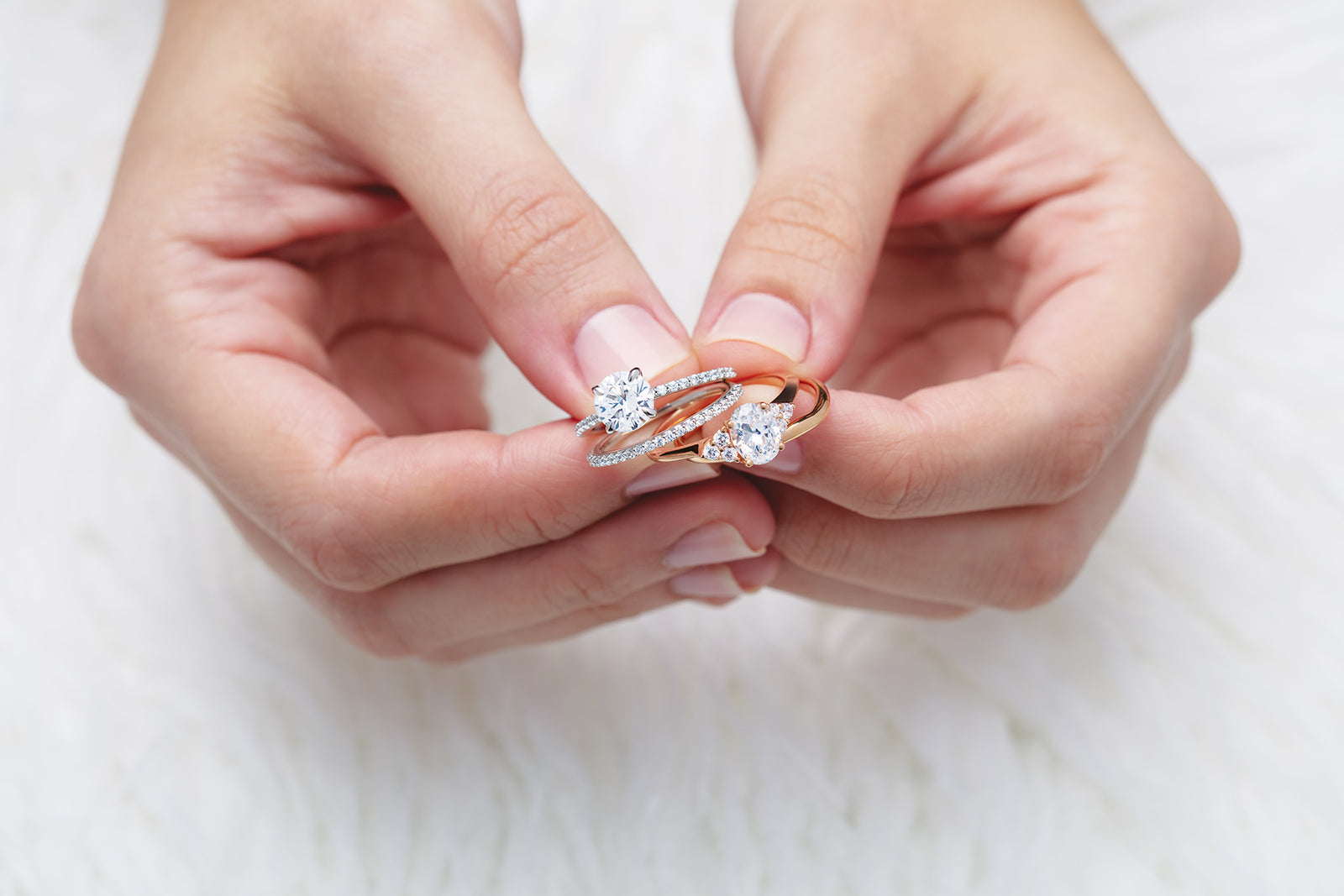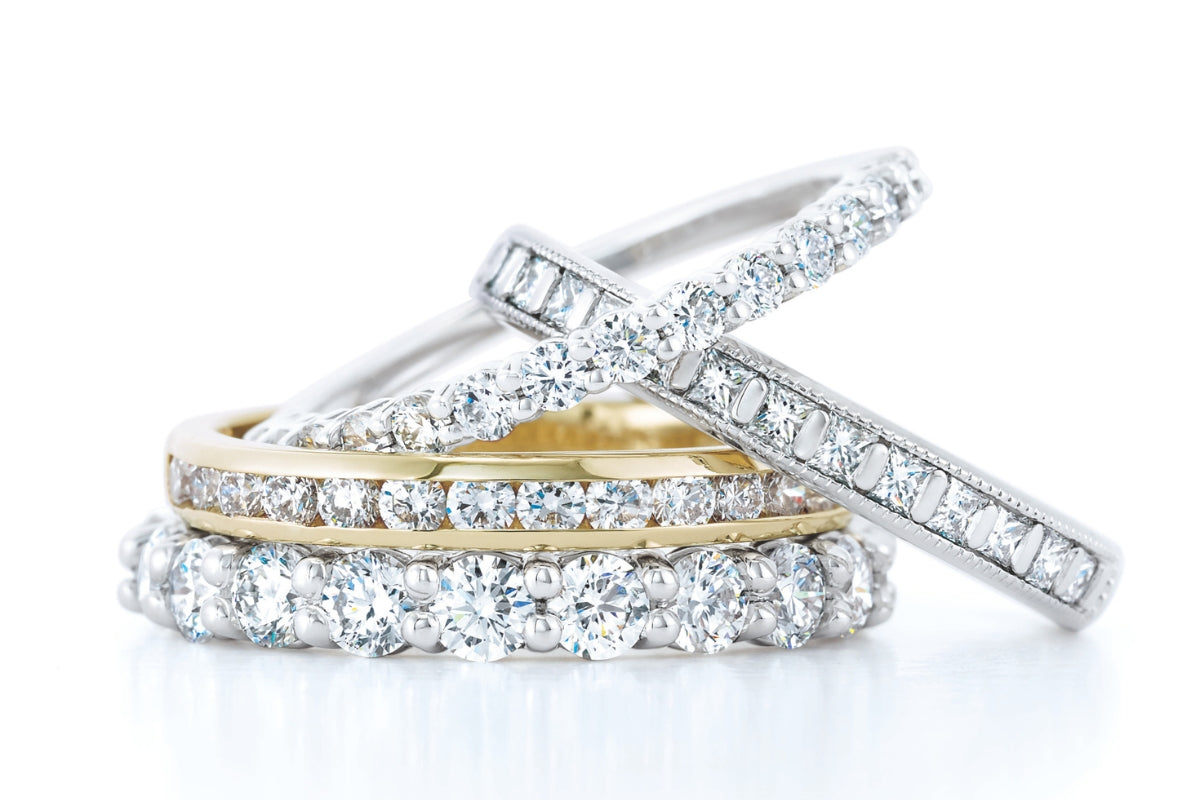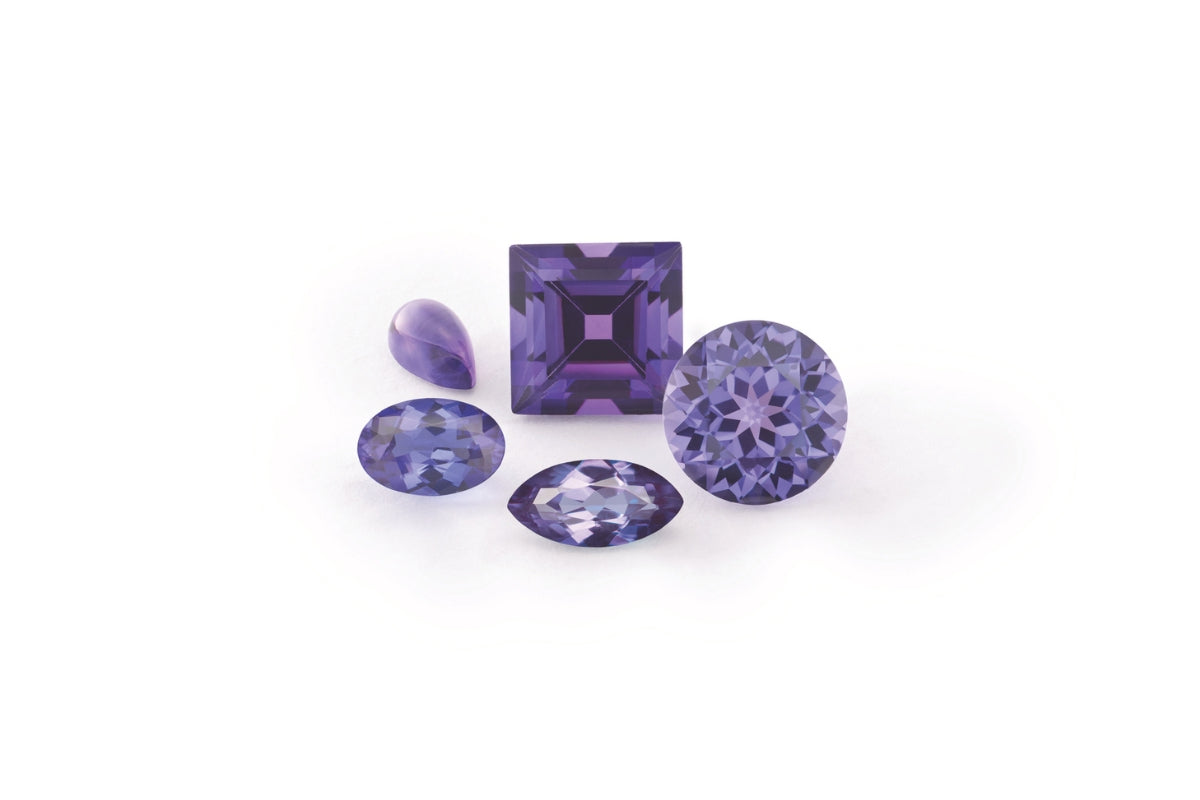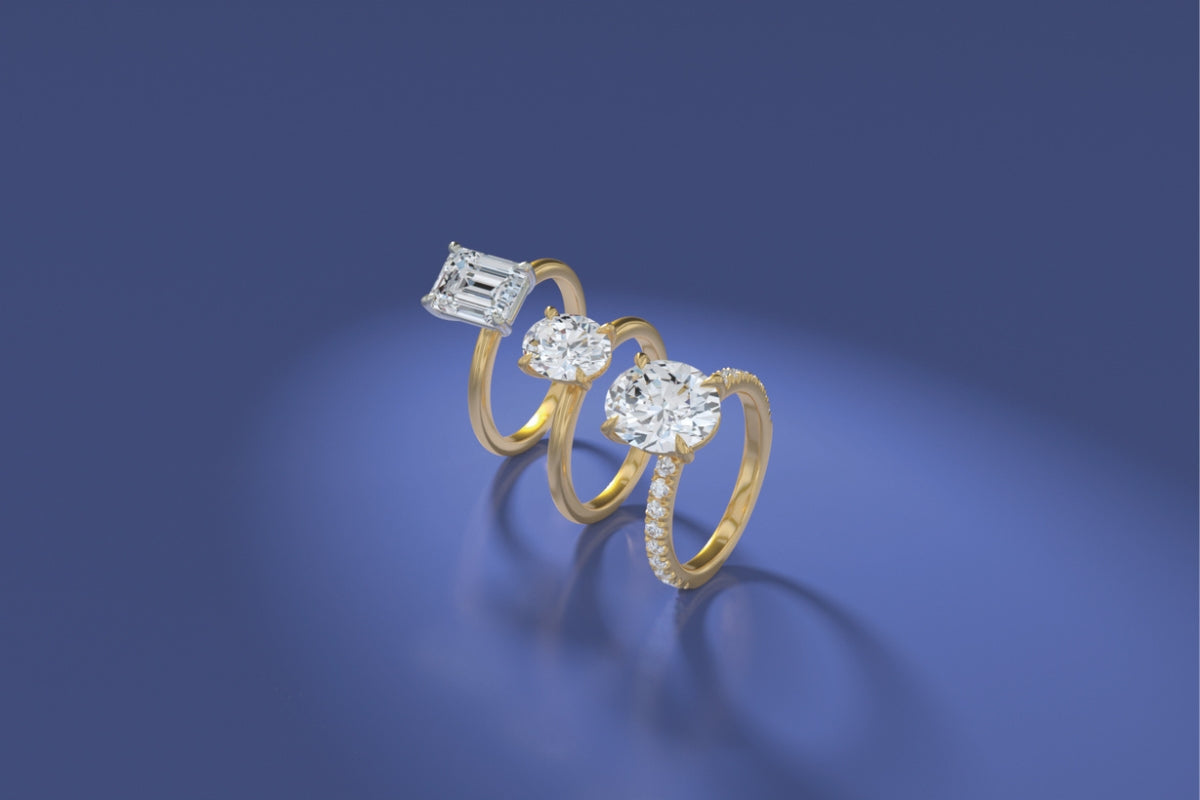Shopping for an engagement ring can be a daunting task. Not only are you about to enter into an exciting new life stage with your significant other, but you’re likely about to spend several thousand dollars on an engagement ring from either a local or online jeweler. “What else am I getting in return for such a huge purchase?” may have crossed your mind, and rightfully so. It’s a great question and one worth seriously asking not only yourself, but the jeweler you’re about to work with. An important criteria that shouldn’t be overlooked is quite literally the fine print of the new relationship you’re starting with the jeweler and their associated fine jewelry. We’ve already discussedbuying an engagement ring in-store vs. online andhow to budget your time effectively. In this blog post we’ll be discussing engagement ring warranties and what you need to consider about the different types of warranties in terms of coverage, duration of time, and costs.
Many times a warranty is reassurance that you’re making the right decision and that you’ll be protected in some manner for either a certain duration of time or specific “covered” future potential issues that may arise from your use and ownership. At the very least, those items in the “fine print” should give you a clear baseline understanding of what to expect.
Regardless of the actual fine print, it’s important to understand what you can and should expect in terms of warranty protection or coverage after you make your decision and purchase such an expensive piece of fine jewelry. From a consumer perspective, this sort of understanding will give you confidence that you’re making the right decision, not only from a quality and craftsmanship perspective, but also potentially from a wear and tear perspective. Should a future issue arise, this understanding will not only give you peace of mind, but it will also set proper expectations between you, your significant other, and the jeweler.
First, let’s define the word warranty. Merriam Webster Dictionary defines “warranty” as:“a usually written guarantee of the integrity of a product and of the maker's responsibility for the repair or replacement of defective parts.” Think of it this way, it’s the understanding you have with the jeweler of what you can reasonably expect if potential future issues arise with your engagement ring (or similar fine jewelry purchase) that were caused by “defective parts.”
It’s important to clarify if the warranty is in writing vs. if it was spoken to you vs. if it was implied. Seeing is believing, so knowing for sure will help you understand what is truly covered and therefore what future costs may be your responsibility. In fact, your understanding of such a warranty may impact the way you use and maintain the piece of fine jewelry. The last thing you want to find out at a critical time is that you misunderstood the said warranty and that it may even cost you money that you hadn’t considered budgeting for ahead of time.

This sort of reassurance is important because in some ways, it can provide insight to the confidence the jeweler has in its own pieces of fine jewelry and can even give you an insight into the future stability of the jeweler from a business standpoint.
If jewelers offer no such warranty or a warranty that is so limited in its scope, duration, or coverage, then it may raise questions in regard to their quality. This could mean that their quality was never on par to begin with, or has diminished as of late, all of which can be an indication of questionable future quality, service, and client care. Basically, it’s an implication that after the sale, you’re on your own.
Manufacturer’s warranties typically only cover manufacturer’s defects. This means that if they made a mistake in production, then those aspects will be covered for the life of the piece. There are exclusions and cases in which this manufacturing warranty can become void if the piece has been altered by another jeweler or maintained improperly. Make sure to ask how long the warranty lasts. Some may only cover you for the first year of ownership. What happens after?
Lately, some jewelers have been offering a “lifetime manufacturer's warranty” (or similar) that sounds amazing, but will certainly be “limited” and accompanied by fine print outlining specifically what is and is not covered. Upon further inspection, you may learn that it is once again limited in its scope or coverage. In cases where the jeweler offers some sort of warranty, especially for lifetime, it's always a good idea to ask for clarification for what happens to your piece of fine jewelry if an issue arises in the future, for example if or when the jeweler retires, closes the business, or moves out of your geography entirely. Is their warranty backed by any sort of third party insurance?
You’ll likely uncover that “wear and tear” is not covered as a baseline industry standard for any sort of jewelry related warranty. In fact, most warranty across various industries also exclude it. It’s actually quite normal for most warranties to specifically exclude specific items like environmental or human factors, including “wear and tear.” Wear and tear is quite literally the degradation that may happen over time, with or without caution upon usage in the future. As you may know, certain fine jewelry components require inspection, cleaning, and maintenance to reduce the likelihood of product failure, thereby protecting your fine jewelry from the inevitable wear and tear from normal life usage. It can be something as simple as Rhodium plating of white gold, missing side/accent stones, a loose, bent, broken, or distorted prong, head, or shank (bottom) of the ring. Many times even customizing, altering, or simply maintaining the jewelry outside of the retailer can mean voiding the coverage you have received. This is due to the retailer not knowing how the customization, alteration, or maintenance affected the integrity of the piece and therefore falls outside the bounds of coverage.

You may be wondering why those wear and tear items are not covered. Well, it’s mainly for one reason: Wear and tear is actually “normal” in the usage of fine jewelry. In most, if not all retail industries, this sort of wear and tear is generally not the responsibility of the manufacturer or retail establishment. It’s a mutual understanding that inevitably and quite literally, wear...and...tear...will occur. This is a completely understandable perspective from a business standpoint and most shoppers would agree that they don’t necessarily expect that sort of coverage post sale.
In order to overcome consumer concerns about quality and especially to relieve a stress factor associated with purchasing an engagement ring or piece of expensive fine jewelry, very few jewelers have comprehensive warranties which go as far as to cover “wear and tear.” These jewelers may offer such warranty for a variety of reasons. But, these types of warranties are in some sense, worn as a badge of honor providing shoppers the peace of mind that they stand behind the quality and craftsmanship of the ring. This point of differentiation will be clearly conveyed with messaging as it’s a strong indication of attention to detail, service, and future client care. Again, it’s important to understand the scope, duration, or coverage of these comprehensive warranties. They are not all the same and actually vary quite a bit. It’s likely that if normal wear and tear is covered, then there will be explicit verbiage outlining strict maintenance requirements and exclusions that fall outside of “wear and tear.” All of the above help set proper expectations in case of neglect. In any case, this sort of warranty is an indication that these jewelers have more confidence in their quality and thus have little to fear in terms of potential future issues.
At Soha Diamond Co. we take pride in each and every opportunity to interact with our clients, whether that be a face-to-face or an online interaction. For this reason, we’ve decided to provide an option to add the most comprehensive warranty possible! Our warranty includes even wear and tear. Benefits include no deductible, no future costs to you, coverage for normal wear and tear, and even two resizings. For local Madison, Wisconsin clients, just schedule a visit to our retail location and drop off your fine jewelry. For clients who reside outside of Wisconsin, our warranty covers shipping both ways to our authorized repair facility for a lifetime! Repairs usually take two weeks. This means that no matter where you live in the United States, you’re protected. To learn more about our lifetime warranty, clickhere.
Warranty aside, there are things that even our warranty does not cover. For this reason, it’s important to at leasthave your jewelry insured in the event of loss, damage, or theft. Soha Diamond Co. recommendsJewelers Mutual Insurance, clickhere for a quick quote (Use Jeweler Code A02374).
There is no current jewelry industry standard coverage in terms of warranties. In some sense, this means that you have to carefully review the jeweler’s warranty. So, next time you’re out shopping for fine jewelry, you’ll be well prepared for the important conversation and understanding around your engagement ring warranty, wear and tear, and future issues that may arise with your fine jewelry.




